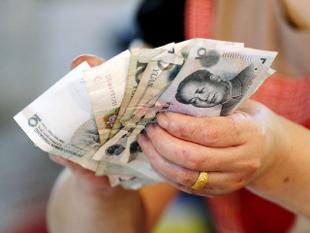A Sneak Peak – What is Yuan Devaluation?
China's Central Bank, devalued its own currency by close to 6%
earlier this week, simply to boost exports in an attempt to recoup from the slowdown
in its domestic economy and recent stock market crash.
The Impact- What It
means for India
The recent devaluation of Chinese currency Yuan, is called to
be a bold move on the part of its Government, considering the fact, that while
it will boost the Chinese exports, this move will eventually harm a large
section of other markets, worldwide. In fact, this came as a blow to the Indian
export market given the situation that the markets have already been going week
in the recent past due to the recessionary conditions in the global arena! Now
the question arises, where is it that it hurt the most? Sadly the answer is not
just singular. This move on China’s part is understood to interfere with
India’s textile industry, chemicals, metals, consumables as well as the
e-commerce sector. Further the depreciation in Yuan’s value may cause Chinese
people to opt local brands over imported ones. India will face substantial
challenges due to this situation because china is a big market for goods such
as cotton copper and chemicals exported from India. If china strategically
keeps reducing the value of its currency in comparison to rupee, Indian markets
might get flooded with cheaper Chinese goods available in the market.
About Textile
Industry
Textile is the largest segment, wherein India and China have
a neck-to neck competition with each other. China is said to have making a move
towards high-end textiles, however, the fact that Indian companies are set to
face certain competition cannot be downplayed. Simply because India deals in
the low-end textile market, which offers considerably low margins and the
devaluation will result in lowering the same even further. Another factor that
comes into play here is that the products of Indian textile industry are sold
at higher duties in almost the entire international arena, therefore making the
local markets noncompetitive.
The major blow in this regard
will be suffered by yarn exports, considering the fact that while the cotton
yarn prices were already falling, the devaluation will result in further slack.
Now, the point to be understood is that while the margins of
Indian companies are sure to suffer a significant fall, especially in context
of exports to China, the Chinese market on the other hand will become much more
competitive than the Indian markets with respect to garments, man-made fibres
and fabrics.
The Solution
Centre has promised to take
remedial measures in the current circumstances to subdue the adverse effects
that might follow by keeping a check on inflow of Chinese goods in order to
protect the Indian manufacturer’s interest, also RBI’s policies will be of
prime importance in this situation since India recently suffered a two year low
against the US dollar in trade. Central banks should also slash its interest
rates in the coming policy meet of September 29th or even
before to cope up with the fall in
annual wholesale inflation for July which was as low as (-)4.05 percent .



No comments:
Post a Comment